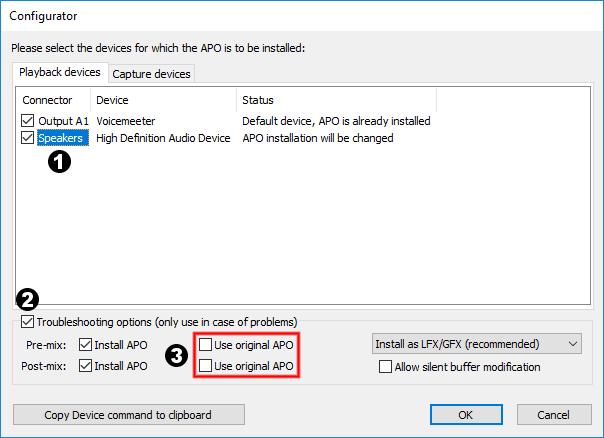Hello all,
Thank you for reading.
Using Windows 11 on my Z790-A mobo. Realtek S1220A Codec.
Playing music to my headphones -without- any driver for Realtek and/or DTS, works OK.
But I miss some handy functionalities when not using that drivers/software.
But when I install the drivers for that board (6.09399.1 from ASUS or later versions (latest 6.0.9611.1) I get strange results.
Playback via headset sounds not as good:
At the start, a fraction of a second, it sounds max volume and then limits it to a reasonable level.
At soft passages, the volume is gained and when the passages are more loud it "switches" back to more normal volume.
I would describe it as a very bad set compressor/limiter....
Does anyone have guidelines for this or similar experiences?
Thank you very much,
Regards
Kees
Thank you for reading.
Using Windows 11 on my Z790-A mobo. Realtek S1220A Codec.
Playing music to my headphones -without- any driver for Realtek and/or DTS, works OK.
But I miss some handy functionalities when not using that drivers/software.
But when I install the drivers for that board (6.09399.1 from ASUS or later versions (latest 6.0.9611.1) I get strange results.
Playback via headset sounds not as good:
At the start, a fraction of a second, it sounds max volume and then limits it to a reasonable level.
At soft passages, the volume is gained and when the passages are more loud it "switches" back to more normal volume.
I would describe it as a very bad set compressor/limiter....
Does anyone have guidelines for this or similar experiences?
Thank you very much,
Regards
Kees
My Computer
System One
-
- OS
- Windows 11
- Computer type
- PC/Desktop
- Manufacturer/Model
- Custom made
- CPU
- I7-13700K
- Motherboard
- PRIME Z790-A WIFI
- Memory
- 32
- Graphics Card(s)
- GeForce 1660 Super
- Sound Card
- On board
- Monitor(s) Displays
- Dell P2314H
- Screen Resolution
- HD
- Hard Drives
- SSD
- Cooling
- Yes :-)
- Antivirus
- ESET










